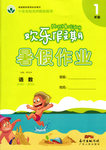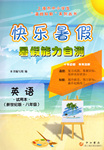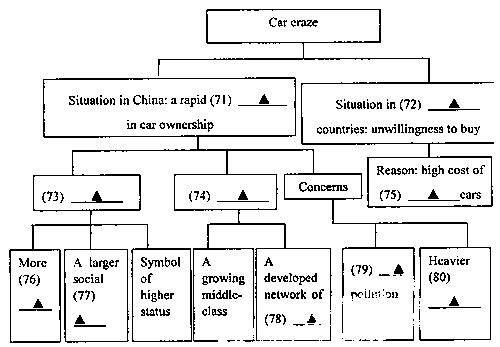题目内容
Pollution is reducing the fragrance(芬芳) of plants and thus preventing bees from pollinating(授粉) them—endangering one of the most essential cycles of nature, a new study suggests.
The potentially hugely significant research, funded by US National Science Foundation, has found that gases mainly formed from the emissions(排放) of cars prevent flowers from attracting bees and other insects to pollinate them. And the scientists who have conducted the study fear that insects’ abilities to drive away enemies and attract mates may also be disturbed.
Professor Jose Fuentes, who led the study, said, “Scent molecules(香味分子) produced by flowers in a less polluted environment could travel for roughly 1,000 to 1,200 meters. But today they may travel only 200 to 300 meters. This makes it increasingly difficult for bees and other insects to locate the flowers.”
The researchers, who worked on the molecules of snapdragons(金鱼草),found that the molecules are volatile(易挥发的) and quickly bond with pollutants, mainly formed from vehicle(车辆)emissions. This chemically changes the molecules so that they no longer smell like flowers. A harmful cycle is therefore set up where insects struggle to get enough food and the plants do not get pollinated enough to multiply.
Already bees, which pollinate most of the world’s crops, are in such a great decline that has never been known before in Britain and across much of the globe. At least a quarter of America’s 2.5 million honey bee colonies have been mysteriously wiped out by colony collapse disorder(CCD),where hives are found suddenly deserted.
The crisis(危机) has now spread to Europe. Politicians insist that CCD has not yet been found in Britain, but considering the present number of bees, the agriculture minister Lord Rooker has sent the warning, “The honey bee population could be wiped out in 10 years.”
Although the researchers are not certain whether this is the real cause of CCD, they say that pollution is making life more difficult for bees and other insects in many ways.
【小题1】 In what way does pollution prevent flowers from attracting bees?
| A.By shortening the distance traveled by the scent molecules of flowers. |
| B.By disturbing the bees’ ability to attract mates. |
| C.By weakening the bees’ ability to fight against enemies. |
| D.By stopping flowers from giving off fragrance. |
| A.Europe is affected greatly by CCD |
| B.CCD has destroyed most of the honey bee colonies in Europe |
| C.no honey bees will be found all over the world in the near future |
| D.European officials have paid much attention to CCD |
| A.Traffic Pollution Puts Bees in Danger |
| B.Traffic Pollution is to Blame for CCD |
| C.Pollution Makes Flowers Lose Their Scent |
| D.Pollution Causes the Decrease in Flowers |
【小题1】A
【小题2】D
【小题3】C
解析试题分析:
【小题1】推断题。根据文章第三段可知:在一个相对干净的环境下,香味分子的传播距离通常是1000到2000米左右,而在一个被污染的环境下,传播的距离通常是200-300米,由此可知,环境污染主要是通过缩短香味分子的传播距离的方式来组织花儿吸引蜜蜂授粉。故A正确
【小题2】推断题。根据文章的描述,CCD引起了欧洲官员的注意,他们也正在全力调查CCD是否是导致蜜蜂等昆虫类动物生活困难的真正元凶。故D正确
【小题3】主旨题。根据文章第一段首句可知,全文主要讲述了环境污染和香味分子之间的联系,也就是说,环境污染让许多花儿逐渐丢失了本身分泌的香味分子,导致了蜜蜂授粉的困难,从而危及蜜蜂等昆虫类动物的生活。故C正确
考点:考查科普类短文
点评:文章主要讲述了环境污染和香味分子之间的关系。该篇文章集中考察了推断题和主旨题,要求考生在理解全文的大意,进一步捕捉细节,再依据细节做出推断题,做此类题,考生应培养自己的推理判断能力,同时注意提高阅读速度。

 Happy holiday欢乐假期暑假作业广东人民出版社系列答案
Happy holiday欢乐假期暑假作业广东人民出版社系列答案 快乐暑假暑假能力自测中西书局系列答案
快乐暑假暑假能力自测中西书局系列答案